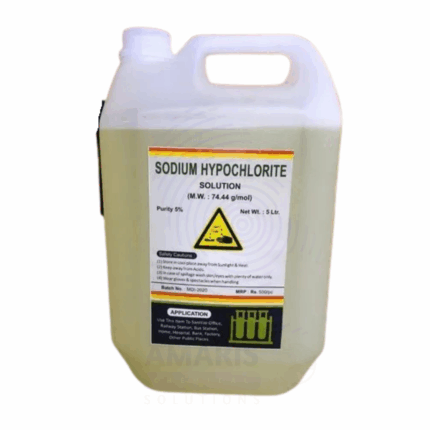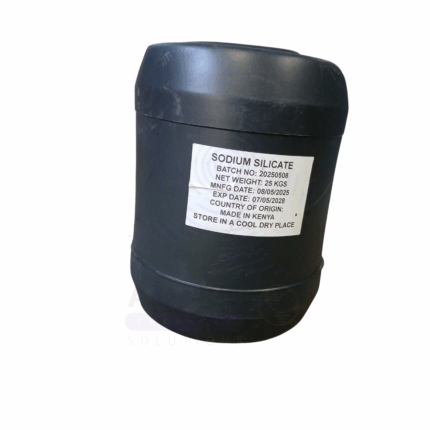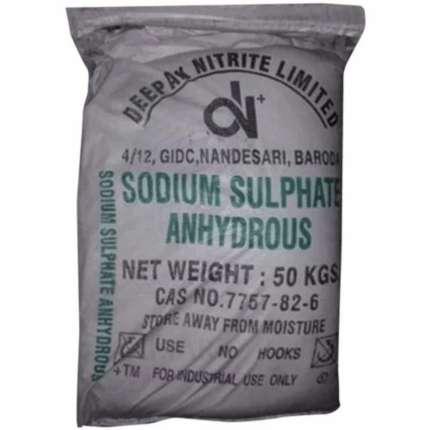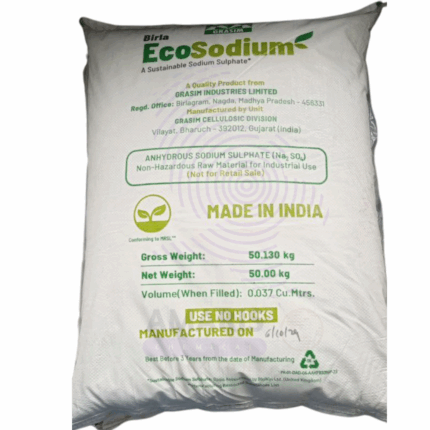
Sodium Disilicate 25kg
Sodium Disilicate, commonly supplied in granular or powder form, is an alkaline, water-soluble compound used widely in industrial applications. It functions primarily as a binder, adhesive, and corrosion inhibitor. Its high alkalinity and silicate content make it effective in detergents, water treatment, and cement manufacturing. Sodium Disilicate is valued for its ability to improve strength and durability of materials, as well as its effectiveness in cleaning and stabilizing processes.
Uses
Primary Uses
- Detergents and Cleaning Products
- Acts as a builder and alkalinity source in laundry detergents and industrial cleaners.
- Enhances cleaning efficiency by softening water and breaking down grease and oils.
- Water Treatment
- Used for corrosion inhibition in water systems, protecting metal surfaces such as boilers and cooling towers.
- Helps control pH and prevent scale formation.
- Cement and Construction
- Employed as an additive to improve cement and concrete strength and adhesion.
- Used as a binder in refractory materials and ceramics.
- Adhesives and Binders
- Functions as a binding agent in various industrial processes including paper and textile manufacturing.
Secondary Uses
- Coatings and Paints
- Used as a corrosion inhibitor and adhesion promoter in certain coating formulations.
- Catalyst Carrier
Sometimes utilized as a carrier or support material in catalyst systems.
Basic Identification Attributes
- Chemical Name (IUPAC): Disodium metasilicate (commonly referred to as sodium disilicate)
- Common/Trade Name: Sodium Disilicate
- CAS Number: 1344-09-8
- HS Code: 2839.31
- Synonyms: Water glass, Sodium silicate
Physical & Chemical Properties
- Physical State: Granular or powder
- Color & Odor: White to off-white; odorless
- Solubility: Soluble in water
- pH: Strongly alkaline (~11-13 in solution)
- Density: Approx. 2.4 g/cm³
Safety & Hazard Attributes
- GHS Classification: Corrosive to skin and eyes
- Toxicity: Moderate irritant; avoid prolonged exposure
- Exposure Limits: Use appropriate industrial hygiene measures
Storage & Handling Attributes
- Storage Conditions: Store in a cool, dry, well-ventilated area, protected from moisture
- Container Type: Supplied in sealed plastic or woven polypropylene bags (25kg)
- Shelf Life: Stable under recommended storage conditions
- Handling Precautions: Use protective gloves and goggles; avoid dust inhalation
- Storage Measures: Keep containers tightly closed and stored in a dry environment
Regulatory & Compliance Attributes
- Complies with industrial chemical regulations for alkaline silicates
- Meets standards for use in detergents, water treatment, and construction applications
Environmental & Health Impact
- Biodegradability: Inorganic compound; does not biodegrade but is not bioaccumulative
- Ecotoxicity: Can be harmful to aquatic life due to alkalinity; avoid environmental discharge
Bioaccumulation: Not expected
Safety Handling Precautions
- PPE Required: Acid/alkali resistant gloves, goggles, protective clothing, and dust mask recommended
- Handling Guidelines: Avoid inhalation, ingestion, and skin or eye contact; ensure adequate ventilation
- Storage Measures: Keep containers sealed and separate from acids and incompatible materials
First Aid Measures
- Inhalation: Move to fresh air; seek medical attention if respiratory irritation develops
- Skin Contact: Wash with plenty of water and soap; seek medical advice if irritation persists
- Eye Contact: Rinse immediately with plenty of water for at least 15 minutes; seek urgent medical attention
- Ingestion: Rinse mouth; do not induce vomiting; seek immediate medical assistance
Firefighting Measures
- Fire Hazards: Non-flammable
- Extinguishing Media: Use water spray, foam, dry chemical, or CO₂ as appropriate for surrounding fire
- Special Precautions: Wear protective equipment and self-contained breathing apparatus if required
Hazardous Combustion Products: None known


 Preservatives(food)
Preservatives(food) Flavor Enhancers
Flavor Enhancers Acidulants
Acidulants Sweeteners
Sweeteners Antioxidants
Antioxidants Colorants(food)
Colorants(food) Nutraceutical Ingredients (food)
Nutraceutical Ingredients (food) Nutrient Supplements
Nutrient Supplements Emulsifiers
Emulsifiers
 Collectors
Collectors Dust Suppressants
Dust Suppressants Explosives and Blasting Agents
Explosives and Blasting Agents Flocculants and Coagulants
Flocculants and Coagulants Frothers
Frothers Leaching Agents
Leaching Agents pH Modifiers
pH Modifiers Precious Metal Extraction Agents
Precious Metal Extraction Agents
 Antioxidants(plastic)
Antioxidants(plastic) Colorants (Pigments, Dyes)
Colorants (Pigments, Dyes) Fillers and Reinforcements
Fillers and Reinforcements Flame Retardants
Flame Retardants Monomers
Monomers Plasticizers
Plasticizers Polymerization Initiators
Polymerization Initiators Stabilizers (UV, Heat)
Stabilizers (UV, Heat)
 Antifoaming Agents
Antifoaming Agents Chelating Agents
Chelating Agents Coagulants and Flocculants
Coagulants and Flocculants Corrosion Inhibitors
Corrosion Inhibitors Disinfectants and Biocides
Disinfectants and Biocides Oxidizing Agents
Oxidizing Agents pH Adjusters
pH Adjusters Scale Inhibitors( water)
Scale Inhibitors( water)
 Antioxidants(cosmetic)
Antioxidants(cosmetic) Emollients
Emollients Fragrances and Essential Oils
Fragrances and Essential Oils Humectants
Humectants Preservatives
Preservatives Surfactants(cosmetic)
Surfactants(cosmetic) Thickeners
Thickeners UV Filters
UV Filters
 Fertilizers
Fertilizers Soil Conditioners
Soil Conditioners Plant Growth Regulators
Plant Growth Regulators Animal Feed Additives
Animal Feed Additives Biostimulants
Biostimulants Pesticides (Herbicides, Insecticides, Fungicides)
Pesticides (Herbicides, Insecticides, Fungicides)
 Active Pharmaceutical Ingredients (APIs)
Active Pharmaceutical Ingredients (APIs) Excipients
Excipients Solvents(pharmaceutical)
Solvents(pharmaceutical) Antibiotics
Antibiotics Antiseptics and Disinfectants
Antiseptics and Disinfectants Vaccine Adjuvants
Vaccine Adjuvants Nutraceutical Ingredients (pharmaceutical)
Nutraceutical Ingredients (pharmaceutical) Analgesics & Antipyretics
Analgesics & Antipyretics
 Analytical Reagents
Analytical Reagents Solvents(lab)
Solvents(lab) Chromatography Chemicals
Chromatography Chemicals Spectroscopy Reagents
Spectroscopy Reagents microbiology-and-cell-culture-reagents
microbiology-and-cell-culture-reagents Molecular Biology Reagents
Molecular Biology Reagents Biochemical Reagents
Biochemical Reagents Inorganic and Organic Standards
Inorganic and Organic Standards Laboratory Safety Chemicals
Laboratory Safety Chemicals Specialty Laboratory Chemicals(Special Laboratory Equipment)
Specialty Laboratory Chemicals(Special Laboratory Equipment)
 Demulsifiers
Demulsifiers Hydraulic Fracturing Fluids
Hydraulic Fracturing Fluids Scale Inhibitors(oil)
Scale Inhibitors(oil) Surfactants(oil)
Surfactants(oil) Drilling Fluids
Drilling Fluids
 Dyes and Pigments
Dyes and Pigments Bleaching Agents
Bleaching Agents Softening Agents
Softening Agents Finishing Agents
Finishing Agents Antistatic Agents
Antistatic Agents
 Admixtures
Admixtures Waterproofing Agents
Waterproofing Agents Sealants and Adhesives
Sealants and Adhesives Curing Compounds
Curing Compounds Concrete Repair Chemicals
Concrete Repair Chemicals Anti-Corrosion Coatings
Anti-Corrosion Coatings
 Surfactants(cleaning)
Surfactants(cleaning) Builders
Builders Enzymes
Enzymes Solvents (Cleaning)
Solvents (Cleaning) Fragrances
Fragrances
 Electronic Chemicals
Electronic Chemicals Catalysts
Catalysts Lubricants
Lubricants Photographic Chemicals
Photographic Chemicals Refrigerants
Refrigerants Automotive chemicals
Automotive chemicals Pyrotechnic Chemicals
Pyrotechnic Chemicals
 Biodegradable Surfactants
Biodegradable Surfactants Bio-based Solvents
Bio-based Solvents Renewable Polymers
Renewable Polymers Carbon Capture Chemicals
Carbon Capture Chemicals Wastewater Treatment Chemicals
Wastewater Treatment Chemicals
 Pigments
Pigments Solvents(paint)
Solvents(paint) Specialty Coatings
Specialty Coatings Binders/Resins
Binders/Resins Additives
Additives Driers
Driers Anti-Corrosion Agents
Anti-Corrosion Agents Functional Coatings
Functional Coatings Application-Specific Coatings
Application-Specific Coatings
 Fresh Herbs
Fresh Herbs Ground Spices
Ground Spices Whole Spices
Whole Spices Spice Blends
Spice Blends Dried Herbs
Dried Herbs
 Leavening Agents
Leavening Agents Dough Conditioners
Dough Conditioners Flour Treatments
Flour Treatments Fat Replacers
Fat Replacers Decoratives
Decoratives Preservatives(baking)
Preservatives(baking)
 Plasticizers & Softeners
Plasticizers & Softeners Reinforcing Agents
Reinforcing Agents Adhesion Promoters
Adhesion Promoters Vulcanizing Agents
Vulcanizing Agents Antidegradants
Antidegradants Blowing Agents
Blowing Agents Fillers & Extenders
Fillers & Extenders Accelerators & Retarders
Accelerators & Retarders






















